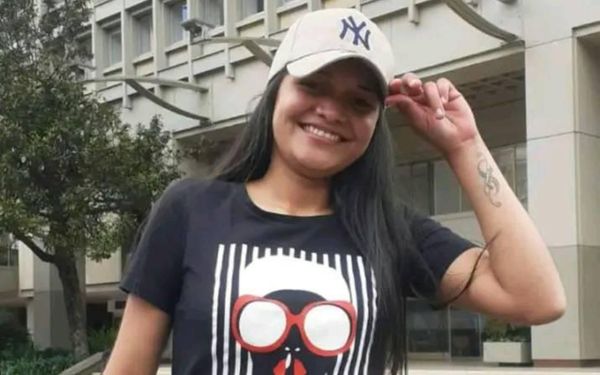
Opposition Leader Peter Dutton remains a hard No on the referendum for a constitutionally enshrined Indigenous Voice to Parliament, but recently declared he supports a repeat referendum should his party win the next federal election. The difference, he said, was to omit the Voice.
“The dividing question is ‘Do you support a Voice?’ — which is what [the prime minister is] proposing. The unifying question is ‘Do you support recognition in the constitution?’ And I believe an overwhelming number of Australians support recognition, but don’t support the Voice,” Dutton said in an interview with Seven’s Sunrise.
Beyond semantics, what’s different about Dutton’s proposal for constitutional recognition of First Nations peoples? What’s the logic to it? Does he have the support of other No advocates? And how many “ifs” are required for Dutton’s plan to come to life? Let Crikey clarify.
What’s Dutton’s proposal for referendum round two?
The detail of Dutton’s own version of a referendum revolves around scrapping the Voice. He maintains support for constitutional recognition of Indigenous peoples but says it’s “wrong” to do so through the lens of a Voice because that promotes “division”.
“It will divide the country down the middle,” he told Sky News, alongside a number of previously debunked myths about what the Voice can and can’t (will and won’t) do.
In less than six weeks, the nation will vote Yes or No on a proposed change to the Australian constitution that seeks to “recognise the First Peoples of Australia by establishing an Aboriginal and Torres Strait Islander Voice”.
The change, if voted in, would result in the establishment of an Aboriginal and Torres Strait Islander advisory body to consult on all government decisions, policies and laws that relate to First Nations peoples.
Dutton has long argued this would “grind the process of government decision-making to a near halt” and undermine legitimate constitutional recognition of Indigenous peoples. His version of a referendum intends to acknowledge the role of First Nations peoples in Australia’s history, but stops short of giving them any power to chime in on government decision-making specific to them.
Does Dutton’s plan have any supporters?
Despite opposition from prominent Indigenous voices and hesitation from within his own ranks, Dutton said in repeat interviews with Sky News that there was “nothing remarkable” about his pitch for a second referendum.
During an address to the National Press Club this week, Professor Marcia Langton was clear: referendum round two did not have her support. She said it was not what Indigenous peoples asked for, not what they wanted, and in a strictly symbolic state would serve no purpose.
“We asked for recognition through a Voice combining the symbolic and the practical to give us both dignity and a sense of empowerment and responsibility in matters that affect us. Peter Dutton’s proposal, to the extent that I understand what he’s talking about, does not,” she said.
“So on those grounds, no, I’m not interested, and I know that over 80% of Indigenous Australians would not be interested.”
Langton also urged voters not to be misled by the prospect of a repeat referendum: “Don’t imagine that there’s another opportunity around the corner. Don’t think your No vote goes in a different pile marked ‘next time’.”
What does Dutton’s own team think of the idea?
From within Dutton’s own ranks, there was hesitation to endorse another national vote on constitutional recognition (remember this could only happen if the No vote won and if the Coalition successfully secured government at the next federal election).
Prominent No advocate, Dutton’s right-hand referendum woman, and shadow minister for Indigenous Australians Jacinta Nampijinpa Price told Sky News her priority was stage one (of Dutton’s three-point plan above): “I’m very much consumed with the fact we are dealing with this referendum at the moment and this for me is my priority.”
Price stopped short of endorsing the idea, maintaining that there were many bridges still to cross for referendum number one before she would properly entertain the idea of a second, albeit different, referendum.
“Recognition is a completely separate issue,” she said.
What are the logistics of running another referendum on the same subject?
According to the Australian Electoral Commission (AEC), the cost of running a referendum is on par with a federal election. In 2022, this totalled $450 million (plus an additional $75 million in public funding).
A spokesperson for AEC media told Crikey that there were no rules and regulations restricting the re-run of a referendum, but it did require government to go back to square one: “To run a completely fresh referendum, everything starts from scratch.”
In short: Parliament would need to rewrite and pass legislation setting out the parameters of the referendum and proposed wording, set a date, and issue a writ.
“The logistics for the AEC are we do what we’re told … the AEC is agnostic on whether or not an event should occur or not. We just act on the will of the Parliament,” they said.
If Dutton passes three rounds of “ifs” (a No win, an election win and a commitment to his word), it would not be the first time a referendum repeated itself. Multiple questions in the 1974 referendum were later retried (with revised wording) after failing a Yes vote. These included the ability for territories to vote in referendums and recognition of local government in the Australian constitution.







